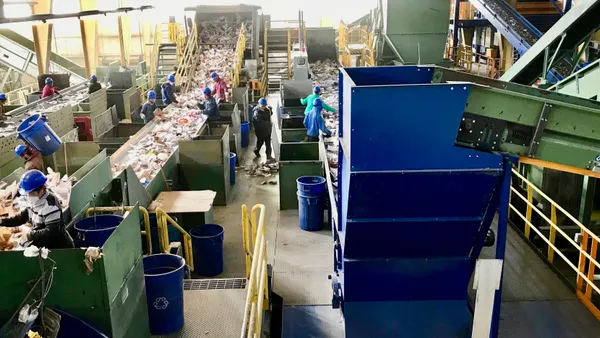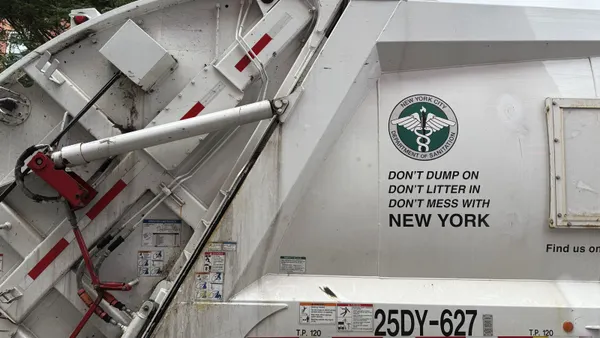Dive Brief:
- A major decision will be made today in the ongoing national bag debate as California residents vote on whether to ratify Senate Bill 270 which bans single-use plastic bags statewide. A "yes" vote on Proposition 67 would uphold the ban and allow stores to charge a minimum of 10 cents for paper and reusable bags, as reported by The Sacramento Bee.
- So far, opponents of the proposition have raised more than $6.1 million. Led by Hilex Poly, the top five donors are all companies from the plastics industry. Supporters of the proposition have raised $3.7 million, led by grocery chains and smaller donations from environmental advocates.
- Proposition 65 would require that bag fees go to environmental purposes, likely administered by the Wildlife Conservation Board, and not retailers. Opponents of a statewide bag ban say that retailers make an estimated $300 million per year in bag fees.
Dive Insight:
As with many ballot questions throughout the country, these two have been criticized for potentially confusing language. According to Californians Against Waste, more than 150 local municipalities already have some form of bag ordinances so it's possible that voters may not be aware of the statewide issue. While neither side has used much traditional advertising, the Northern California Recycling Association did release a unique rap video in support of the ban.
Many local newspapers have endorsed voting yes on Prop. 67, though few official polls have been conducted and a likely outcome hasn't been widely predicted. Conservation groups continue to call out the bags as harmful to the environment, while manufacturers continue to promote drop-off recycling programs for the material.
A growing number of cities outside California — including Seattle, New York, and Chicago — have moved toward some form of bag ordinance. No state has successfully implemented one yet. A few U.S. territories have their own, yet advocates believe it will take a large state such as California to turn the tide. Other countries have reported early success from their own bag fees though shoppers — and plastics manufacturers — may not give up their bags so easily in all parts of the U.S.










